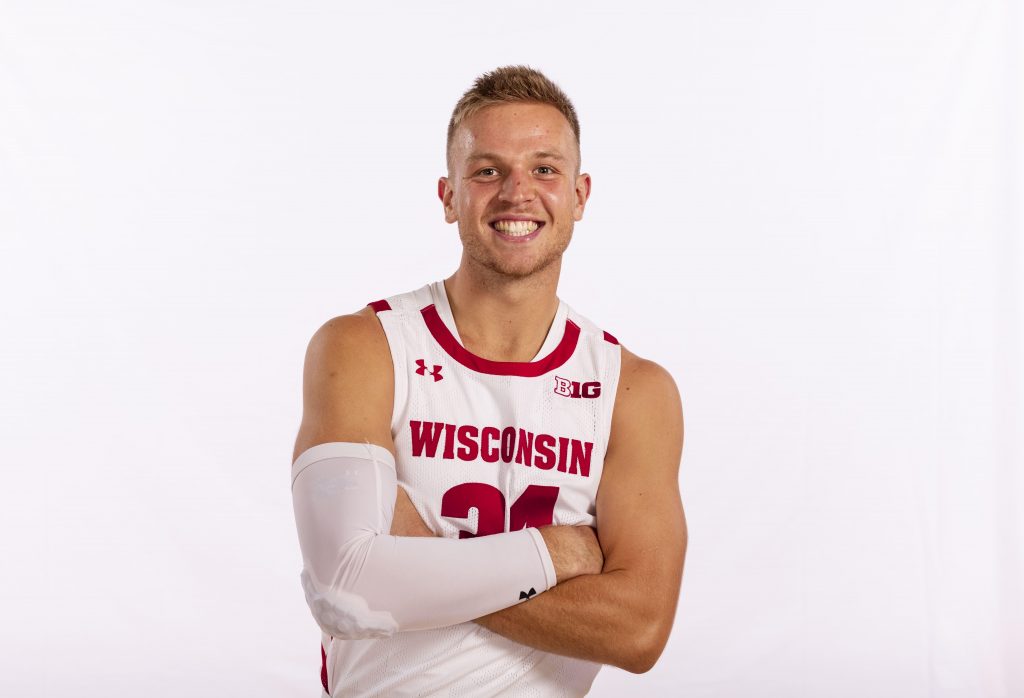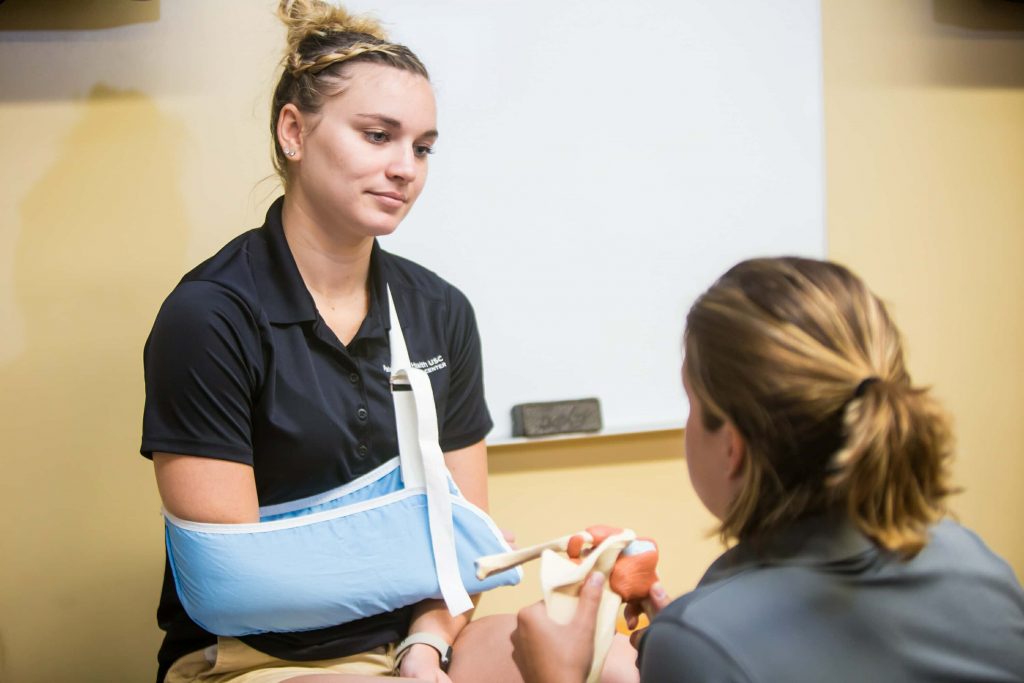
My name is Brad Davison. I grew up in a basketball family with parents that played and coached and two sisters that played.
Having my parents as coaches during my youth basketball beginnings, I continued the family tradition as a Division I basketball player at the University of Wisconsin (UW) where I am pursuing a master’s degree in Educational Leadership.
My college basketball journey started as part of the Big Ten All-Freshman team and finished as UW’s second-leading scorer in 2018. On my path to get to where I am today, I had to overcome a recurring shoulder injury and months of post-surgery rehab. During this challenging process, I received tremendous help from my Athletic Trainer at UW to get back on track, physically and mentally, for my basketball competition.
This is the story of how my Athletic Trainer left a positive impact on me and my student-athlete career during my time at the University of Wisconsin.
A Promising Start Derailed By A Recurring Injury
During the fourth game of my freshman year, I fully dislocated my left shoulder socket in the middle of the game. I had to go back into the locker room. My Athletic Trainer, Henry Perez-Guerra popped it back into place.
After the incident, I had to pass certain tests and was allowed to go back in and play. Throughout the season, the same incident happened to me in nine more games.
I had a long freshman year and spent a lot of time with Henry, tending to my physical needs. The following year, I had full shoulder reconstruction surgery, which led to an eight-month recovery and rehabilitation process.
Rehabilitation was physically grueling because it was tough to regain strength and return performance to pre-surgery levels. It took a very real, strong mental toll on me as well. Emotionally, I was left without the sport I loved and without my teammates. I couldn’t do things I was normally allowed to do.
I was in a very uncomfortable situation.
Henry stepped in and told me how my body was going to get back and how his job was to make sure I was mentally in a place where I was comfortable and confident in my abilities. Ultimately throughout the rehab process, I could get to a place where I started sharp mentally and got cared for emotionally.
Henry’s end goal did not stop with getting me back on the court. He thought long-term about my physical health and knew there was also my mental health that benefited from being cared for during and beyond the rehab process. Knowing my Athletic Trainer cared about my total wellbeing kept me motivated throughout recovery.
The Road to Recovery Starts with a Relationship Built On Trust
For my first four years, fortunately and unfortunately, I got to spend a lot of time with Henry because of the injuries. Regardless, we loved hanging out with each other. Henry was one of my best friends in the program. Just like any meaningful relationship, this relationship was built on trust.
The Athletic Trainers are in a position where a lot of athletes come to them in vulnerable situations. They really have to put their trust in the Athletic Trainers. This isn’t so simple when you consider that the athlete’s physical condition and sport mean so much to them. It’s a delicate balance for the Athletic Trainer to handle being the professional advisor and yet close enough to the athlete that they remain open, honest, and trusting of the process.
Athletic Trainers have the knowledge and can help heal the athlete’s conditions. This gives them the opportunity to develop strong relationships with the athletes quickly because of the belief the athletes have in them.
Everyone thinks an Athletic Trainer tends to an athlete’s physical needs, but they tend to their emotional needs as well. Oftentimes, mental and emotional support is overlooked for athletes who are expected to “just perform”. Athletic Trainers, however, understand that there’s more to the non-physical parts of the game.
Athletic Trainers are, in a lot of ways, the backbone to any program because ultimately, athletes need to be healthy and mentally in the right spot as they go into competition. Otherwise, they miss the opportunity to perform at their peak.
An Athlete’s View on What Makes the Perfect Athletic Trainer (AT)
An Athletic Trainer always has the athlete’s best interest in mind. They do what is right for the athletes and don’t carry their own agenda. There’s a focus on making sure the athlete is healthy and prepared to perform at their best. This is a blessing to athletes and truly unique in our lives.
While Athletic Trainers are a consistent support system ensuring athletes are ready to perform at their maximum potential, they don’t seek credit or recognition for this role. It’s not about the spotlight, but simply having pride in what is done behind-the-scenes to care for the athletes. This is something I believe we should all truly admire and respect.
My personal experience off the court with Henry illustrates how an Athletic Trainer can be someone with whom you are able to develop a strong relationship so quickly. This leads to great opportunities for an intentional conversation and a lifelong bond. In the end, the relationship goes much further and deeper than just being athletes and Athletic Trainers.
The relationship is similar to a friendship, a brotherhood, or even a fatherhood, because of the time you get to spend with each other and of the trust you develop over time. You have a really strong relationship that takes care of your physical, mental, and spiritual health.
My Advice to Student Athletes
Get to know your Athletic Trainers and ask questions. Have real, genuine intentional conversation that goes beyond taping ankles or rehab. They can and will do so much more for you to make sure you perform at your best.
Ask your Athletic Trainers about themselves, their family, what they did in college or what sports they played. It’s a two-way street. Treat them like a friend. Treat them like another human, and not just an Athletic Trainer there to serve you.

When you have a relationship with someone, especially with your Athletic Trainer, it means you naturally become more open with them and they can become more open with you as well. When two individuals are open with each other, especially when it comes to an injury or recovery, that is when the most progress can be made.
Ultimately, you both want the same thing: for you to perform at your best. For an athlete, that should be a given for yourself. To find someone else who is also dedicated to that mission, however, is a special opportunity. Please do treat it as one.
Davidson’s injury was unfortunate, though common for many athletes. Athletic trainers will see similar scenarios throughout their career. However, being able to aid in the rehabilitation and recovery of an athlete is a key role of the Athletic Trainer. If you’re considering a career in athletic training, read about wanting to be an AT to explore the profession and admissions process.
